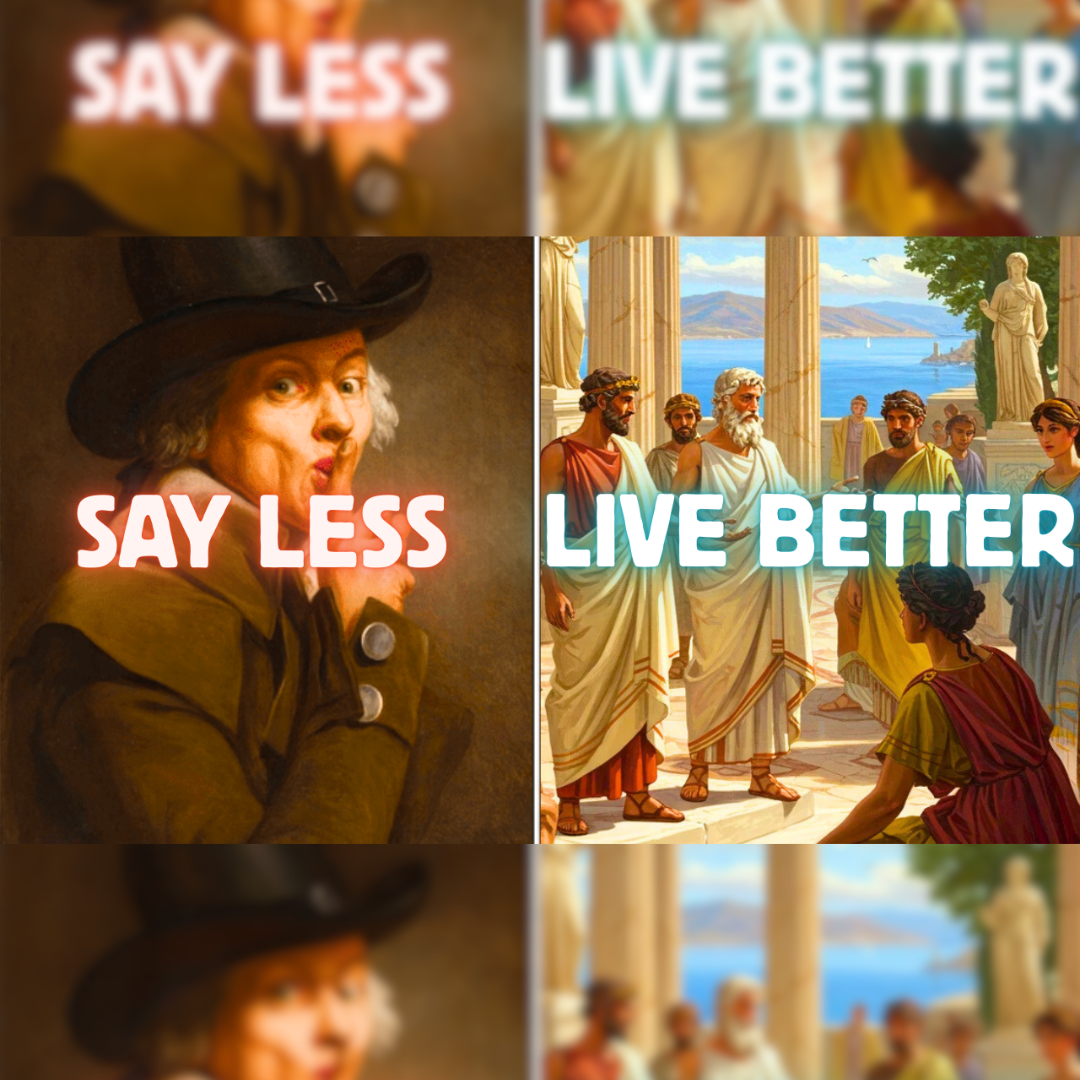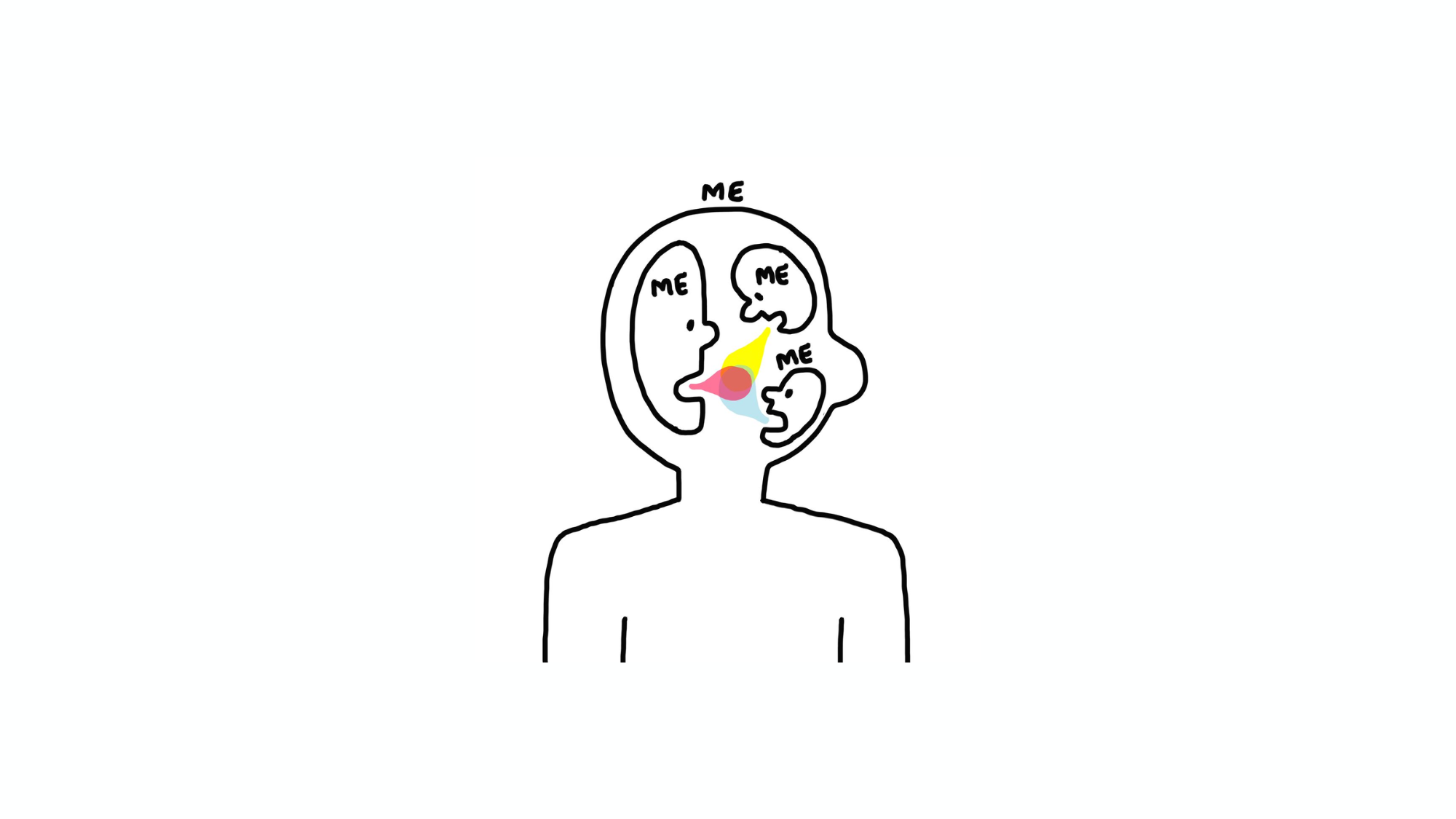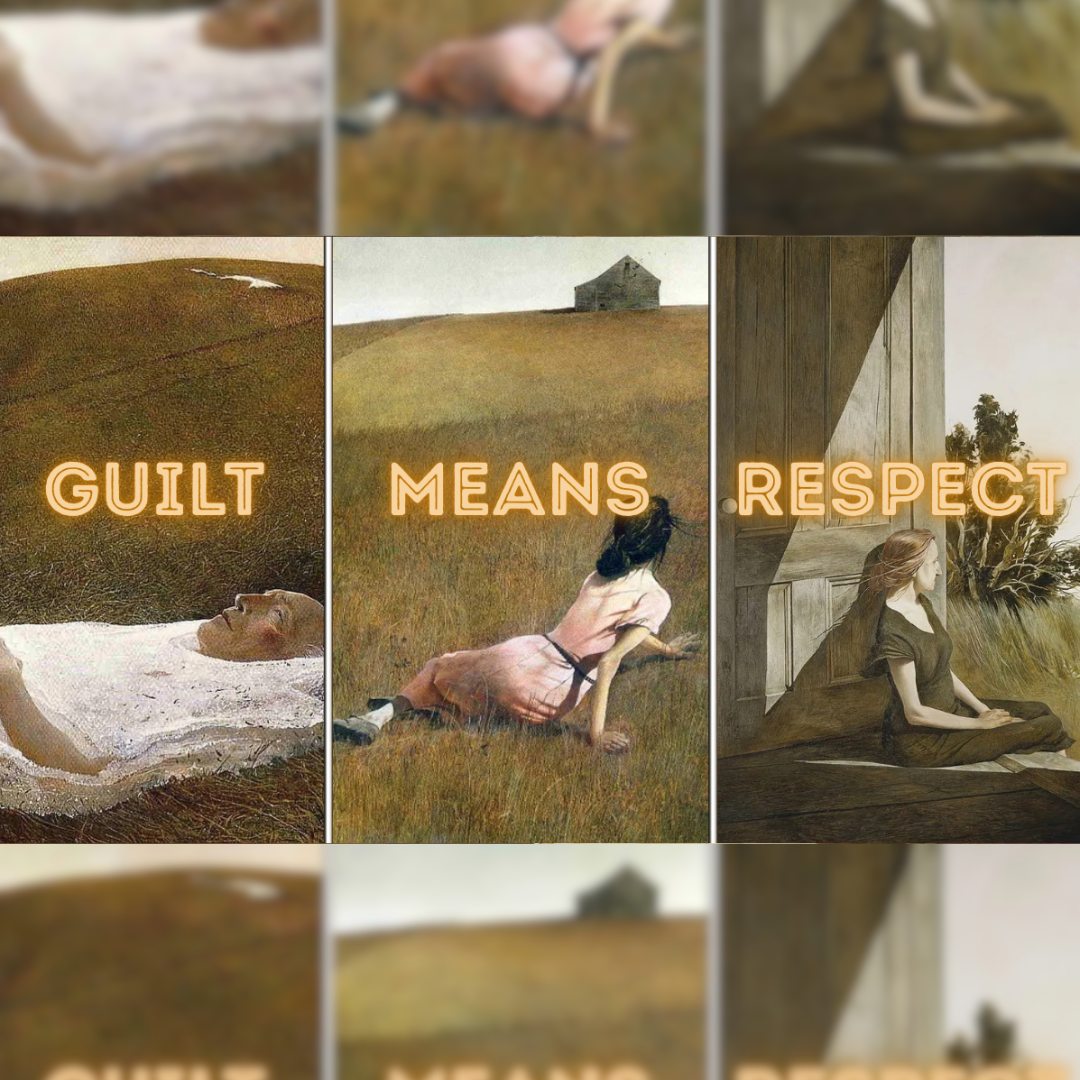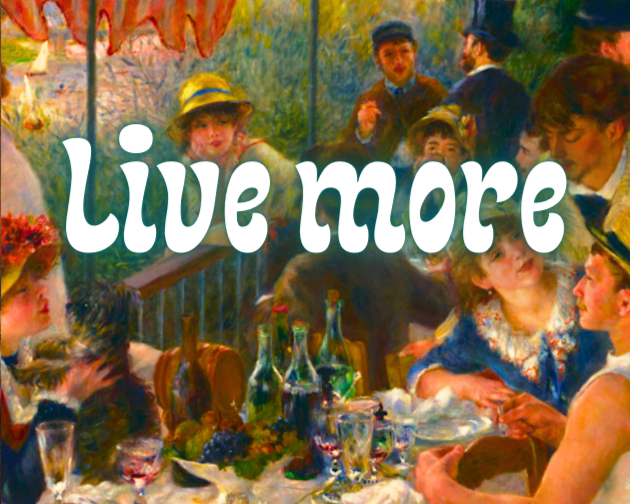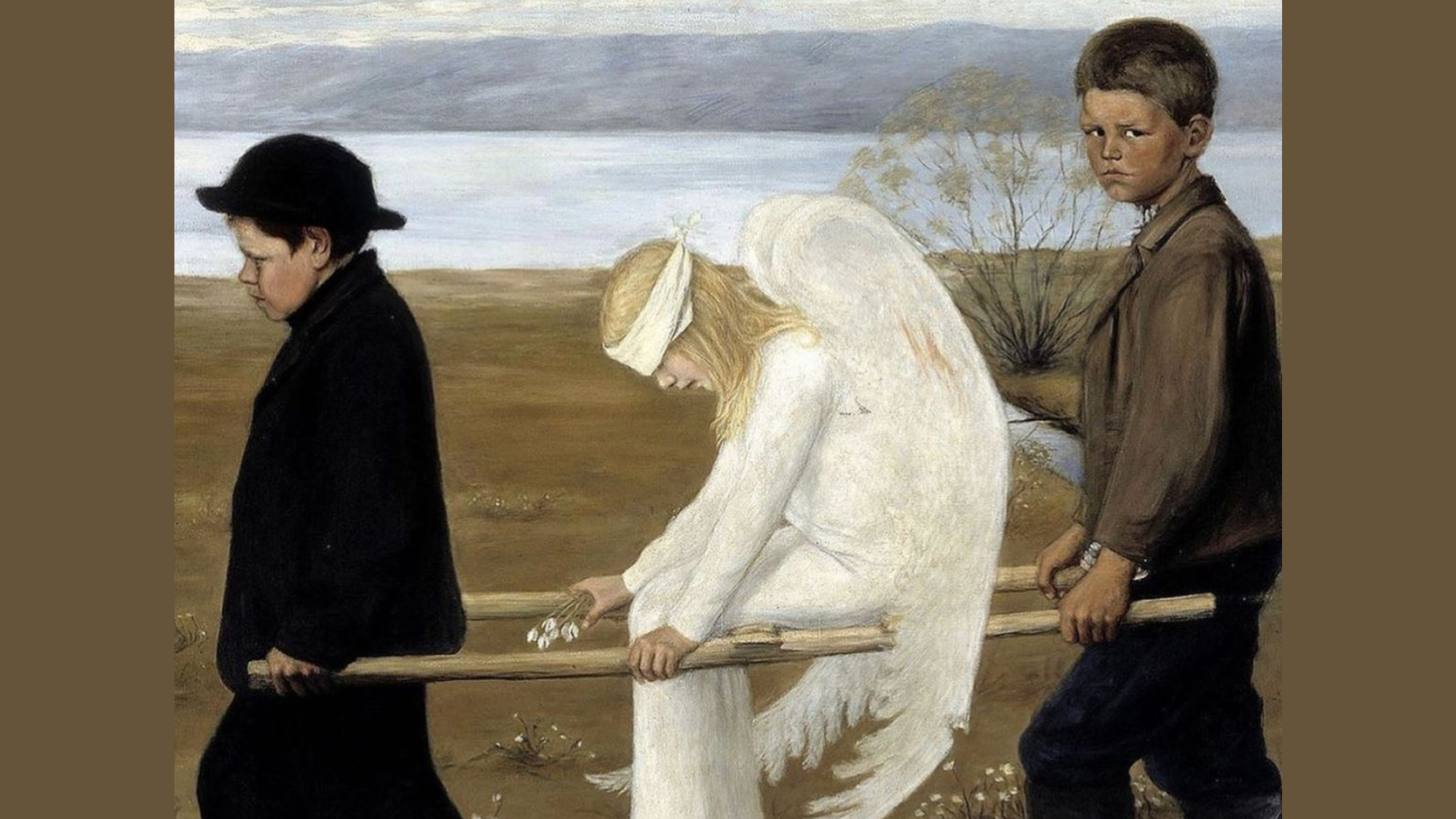

The Cage, My Chimp & I - Understanding Our Instinctual And Rational Systems (8 min read)
Introduction
Inbuilt in our minds is a primitive chimp, an impulsive and instinctual system residing in the orbital cortex, consisting of various drives and instincts that are often low self-esteem in nature.
The justification for this primitive side being connected to feeling of low self-esteem can be traced back to when we were primates, when surviving the next day was never guaranteed and being outcast by your community meant starvation. In this cut-throat existence, we had to think fast, prioritise short-term fixes, and gravitate to solutions that will give us more security, preferring pleasure in the moment over suffering. We would also be on the lookout for escape routes to avoid suffering as experiencing pain would trigger our flight mode as the threat of starvation would cause an emotional and irrational response, failing to grasp the possibility that short-term pain may lead to long-term gain.
Fast forward a few million years, and we still have this fight or flight mode, although fortunately we have more time to think through our decisions and utilise our rational faculties. However, the consequences for this shift to rationality is that we neglect this darker, primitive side of our psyche – we lock it in a cage and throw away the key. When this part of ourselves does reveal itself, it often catches us by surprise, rearing its ugly face during a heated moment, whether it’s during a competition or in a survival setting. After the fact, you may be ashamed and apologise, saying “sorry I got carried away, I don’t know what came over me” as if it is an external force that momentarily possessed you.
If you are constantly hijacked by this chimp side of your personality and feel ashamed when it takes over, this is a sign that there is an inner power struggle between the chimp and your rational side, and you need to bridge the divide by letting it in and learning to understand it.
Accepting your dual nature is the first step
Before you can hope to quash these impulsive outbursts that occur whether it’s in public or during a heated game of Monopoly with your family, you must first accept that it is a part of you and learn to live with it.
You must also accept that it is only through your rationality and your ability to contextualise and establish the facts of a situation that you can limit your feelings of insecurity and shame which come up to the surface.
One example of contextualising something that may be initially unpleasant is failure. Looking past the short-term pain of falling short and, instead, understanding that failure can result in growth can help us overcome the negative feeling of rejection. This, in turn, allows us to avoid the primitive urge to seek immediate pleasure as a remedy.
Here we can see the distinction between our chimp side and our rational side which has been touched upon; the chimp favours the short term whilst the rational side is able to look at the bigger picture, recognising that sometimes immediate suffering can lead to the greater good.
You must learn about your own ‘inner chimp’ in order to tame its volatile emotions and keep it happy. If ignored, it will get restless and hijack your mind.
Imagine that your chimp currently lives in a cage, neglected and desperate for control. Before it is too late and tries to hijack you, you need to reward it as if it is a pet with fundamental needs. As Maslow demonstrated with his hierarchy of needs, safety (health) and security (food and shelter) are the two foundational needs at the bottom of the hierarchy that need to be met before we can move onto the higher levels. Similarly, we can look at our chimp as the lower level that needs to stay happy and feel secure to keep your feelings of low self-esteem at bay. If we neglect this foundational level, we will not be able to reach the top hierarchy of self-actualisation (becoming the best version of ourselves, one which understands the needs of both the chimp and the rational human).
Expanding on the cage analogy, the parameters of the cage itself can grow in proportion to the courage the chimp feels it has. If the chimp is ignored, it will remain in this cramped, limited environment until it eventually lashes out and starts shaking the cage in madness because it wants to be let out. With our chimp side being tied to low self-esteem, all it wants is acknowledgement and reassurance. It is our responsibility to expand its cage so that it doesn’t feel the walls of its enclosure. It is not equipped to offer the human solutions but instead can illuminate the darkness so that we can decipher it contents and expand our surroundings.
A parallel can be made here with Plato’s allegory of the cave in which prisoners are chained inside a cave, and they are only able to perceive the shadows of figures on the wall. If this is all they see, they will believe that these shadows are the only reality. [1] Think of this as the chimp’s experience prior to our intervention. Now Plato asks us to imagine that one of the prisoners breaks free and follows the light to the opening of the cave, discovering that there is an outside world more real than the shadows on the wall. This is us beginning the journey towards enlightenment. However, first we must go back and bring our chimp with us to light our path. This is easier said than done as the chimp’s reality are the shadows on the wall, and so we must be delicate with its needs of safety and security and dispel the illusion that the walls are all that exists.
This means we must move away from a life of conformity and practise courageous acts so as to encourage the chimp towards exploration. Remember it is in both of our natures to explore!
Imagine that the chimp is on our backs, and we are carrying him through an unexplored terrain to a new world. This can be compared to the legend of Saint Christopher who, according to the myth, was a giant man who carried Christ across a treacherous river. Despite Christ weighing more than the average traveller that Christopher would usually take on his back, he was resilient and got him across the river unharmed. [2]
Expanding on the link with this myth and the chimp’s cage further, we can view the child of Christ as our own inner childlike spirit, one that motivates our rational side to explore and protect our inner potential, leading the child through the untrodden path.
Reflection
How to know when you have confined yourself in your Chimp’s cage
If you are unsure whether you are in this cage where your potential is stunted and are oblivious to your depressive feelings, pay attention to the language you use in your day-to-day.
A recent study published in Clinical Psychological Science found that people who use more first- person singular pronouns (such as “me”, “myself” and “I”) than third-person pronouns is an indicator that they have symptoms of depression. [3]
This pattern of pronoun use suggests people with depression are more focused on themselves, and less connected with others.
Of course, this isn’t necessarily a surprising discovery because, when you are in the midst of pain, your focus is limited and you tend to retreat to your familiar comforts.
The study also compared 64 mental-health forums with 19 non-mental-health forums and found that the use of “absolutist words” such as “always”, “nothing” or “completely” was approximately 50% higher in anxiety and depression forums, and approximately 80% higher in suicidal-ideation forums than compared to the other forums. [4]
Therefore, those with depression will likely have more of a black-and-white view of the world, with this absolutism being used as a coping mechanism, which manifests in their style of language and keeps them stuck in their cage of false security.
What if I don’t know I’m in the Cage?
If you are still unsure whether you are in a cage, another useful exercise would be to imagine yourself on your death bed. Although this is a morbid exercise, this could make you realise that the restrictions you have actively made for yourself are all smoke and mirrors, an illusion you have put up to keep you boxed in. Just like Plato’s cave analogy, you may have been staring at the walls for so long that you have convinced yourself that they are the only reality.
What if I know I’m trapped?
If you are aware you are paralyzed in your cage and want to expand your parameters, that’s a good sign that you are aware of your situation and are receptive to progress. Once you reach this acceptance, the next step is to excite and motivate both your chimp side and your rational side by realising and appreciating the sheer fluidity of choice you have at your disposal and that you are up for the challenge of exercising your freedom and exploring what is unknown.
It is all to do with framing this as an adventure, an exciting challenge which we are ready to experience. This is important as we can often feel overwhelmed at the abundance of our choices and feel anguish, feeling as if we are floating aimlessly in space. This can be felt strongest when we are single and we are not tied down by any responsibility. There is almost an infinite amount of alternate lives we can lead and this can makes us feel anxious.
The existentialist philosopher Jean-Paul Sartre describes this as feeling nauseas at our amount of options. In his novel aptly titled Nausea, Sartre unpacks these universal feelings of existential anguish for the absurdity of our existence with the main character Antoine coming to terms with the boundlessness of his freedom in the form of diary entries. Sartre believes that a man must grapple with his “existential anguish as he navigates the absurdities of his mundane life.” [5] To Sartre, this banality of our day to day is at odds with the boundlessness of life, leading him to the conclusion that “the only way to deal with life’s absurdity is to live it to the fullest, embracing its meaninglessness”, and “being aware of one’s nausea”. [6] Once we are aware that this anguish lives in us, we can live a lucid existence and ascend to a heightened awareness, recognising the beauty in life and coming to terms with its fleeting nature. In the context of the Cage analogy, this realisation promotes unrestricted exploration, increasing the parameters of our cage as a result.
Conclusion
In conclusion, we should never be ashamed of our chimp side, it is our responsibility to be patient with it, and embrace, encourage, and reassure its low self-esteem tendencies. With the chimp being tied to our instinctual system, we can learn a lot from it. It can teach us to let go of our preconceptions and be formless. With this side integrated, we can be a clean slate in every encounter allowing us to be adaptable and less stuck in our rationality which may be built on a misconception. It reminds us to sink into the journey, not solely fixated on a long-term destination. In the same breath, we must also engage with the chimp’s curiosity and learn to be courageous, guiding our chimp through treacherous obstacles using our rational system to see the bigger picture.
Thanks for Reading,
Brandon Bartlett
Newel of Knowledge Writer
Sources:
[1] Plato – Republic
[2] The Saviour of the Child St Christopher
[3&4] Clinical Psychological Science - https://theconversation.com/people-with-depression-use-language-differently-heres-how-to-spot-it-90877
[5&6] – Jean-Paul Sartre – Nausea (1938)
tHURSDAY'S THERAPY
Join 10,000+ improving their mental health & social skills 1 Thursday newsletter at a time
Happy to have you here!
try refreshing the page and trying again!




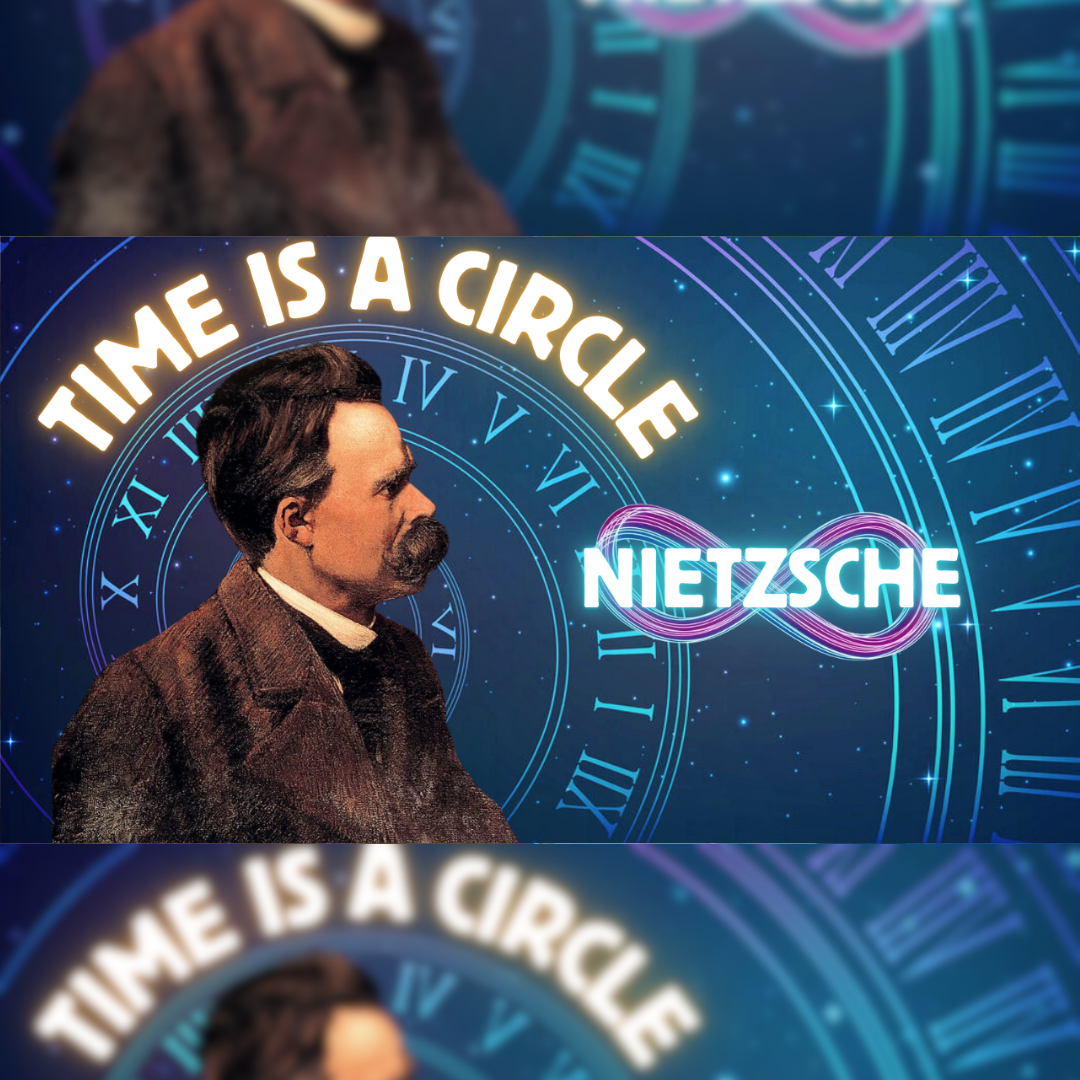
.png)
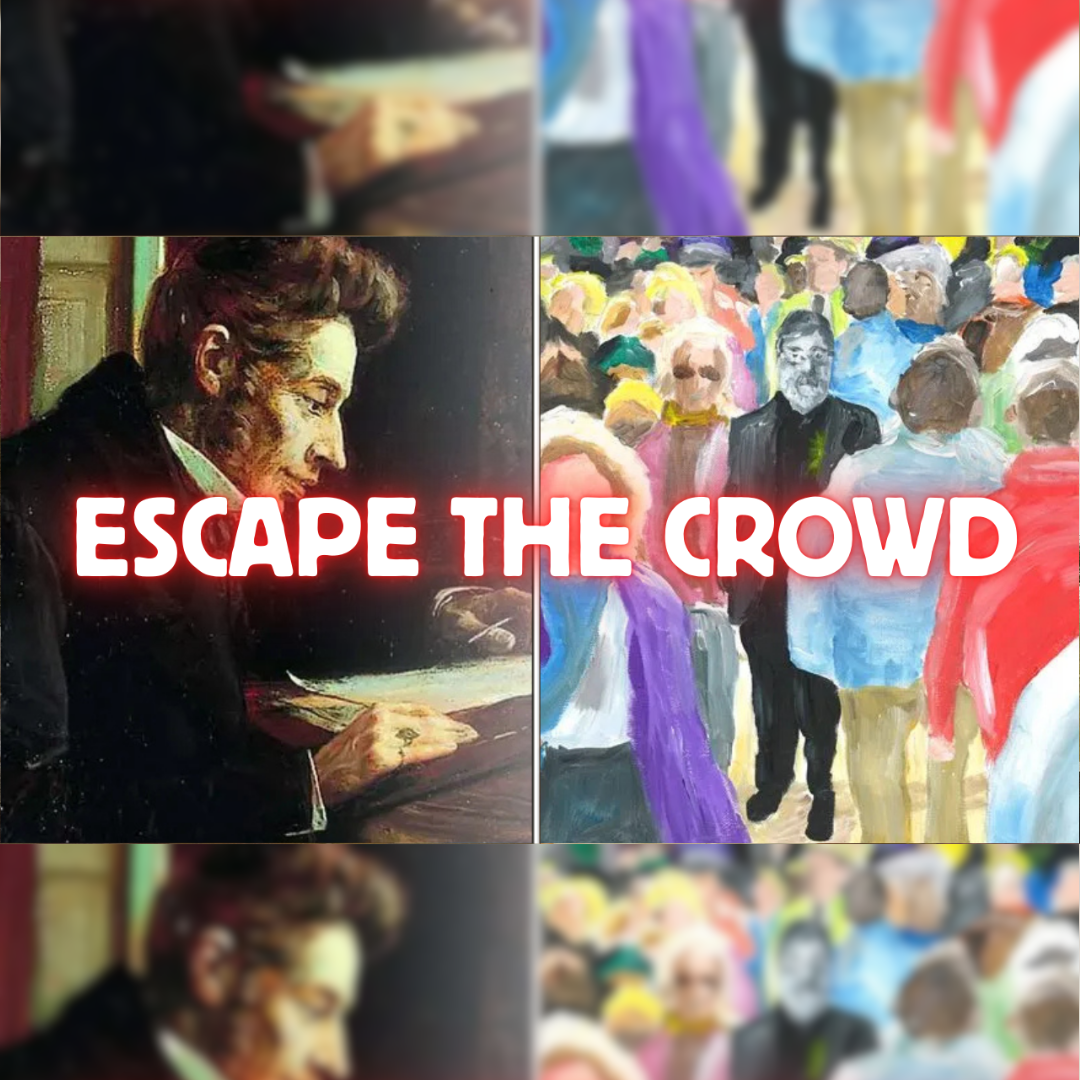
.png)
